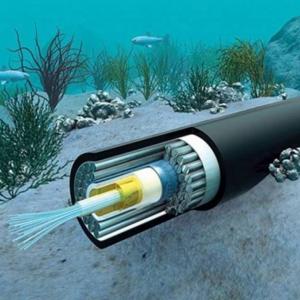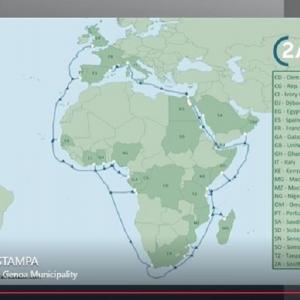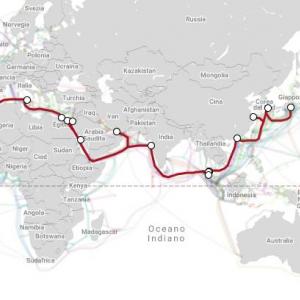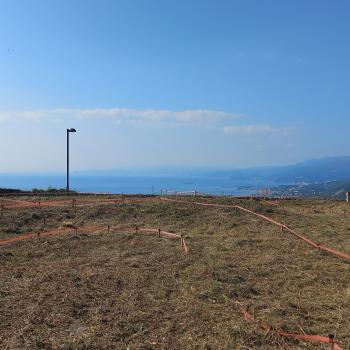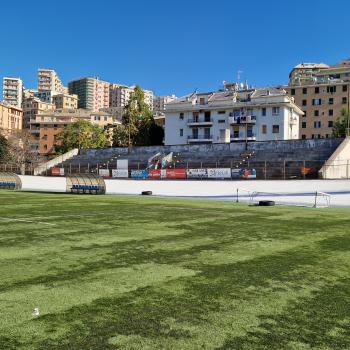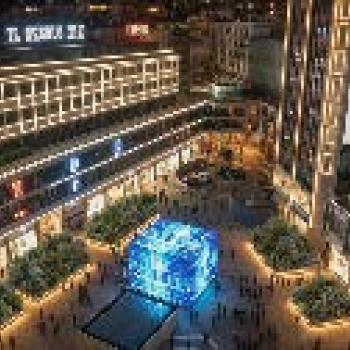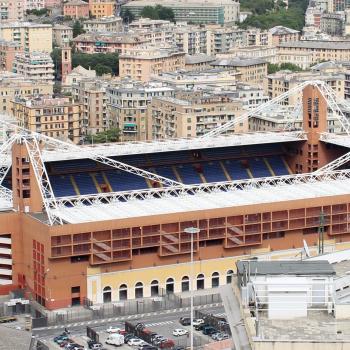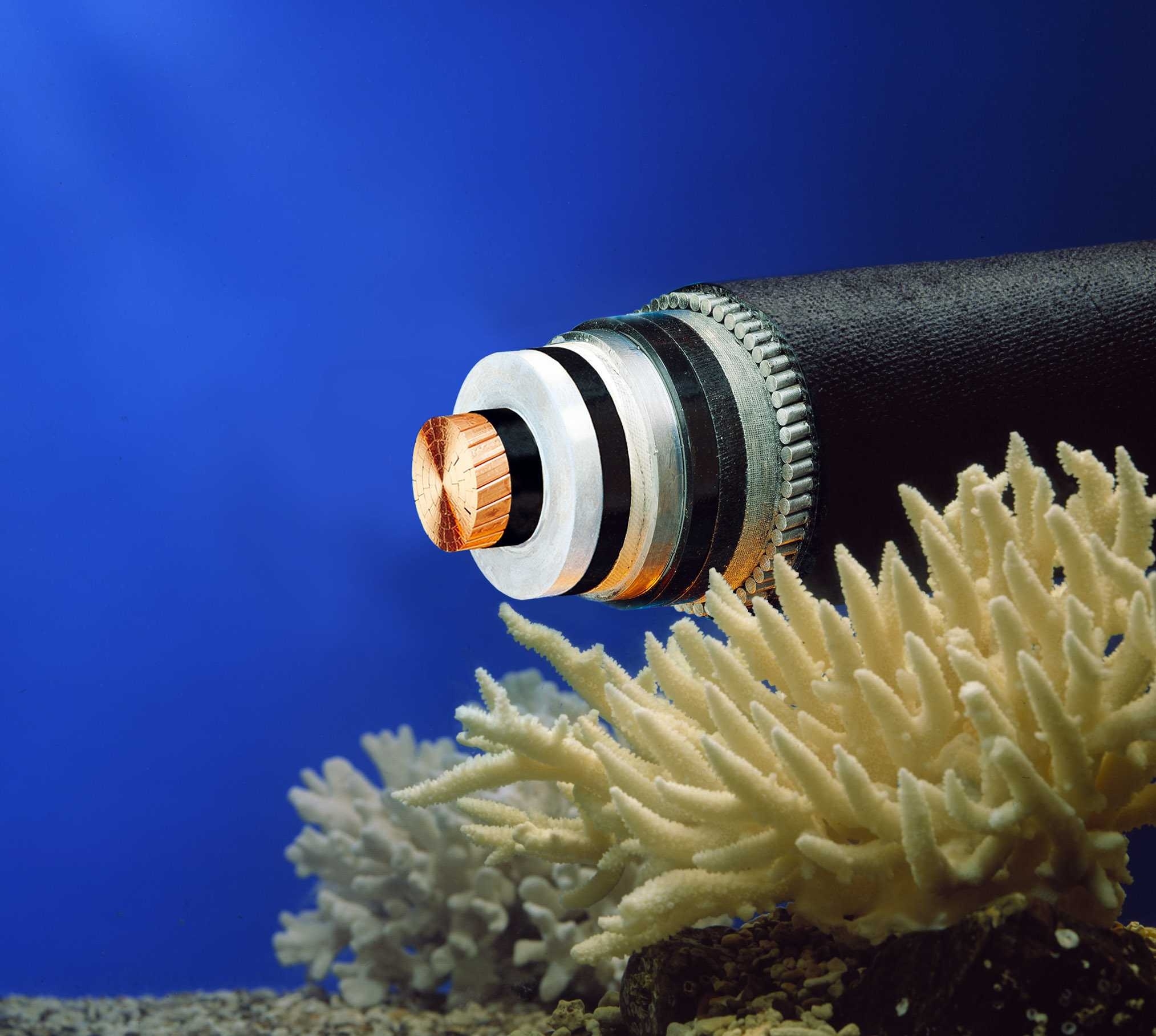
- 07 Sep, 2021
Data communication infrastructures are as critical as roads and railways.
Genoa has a rich history in maritime trade and is now located to be a strategic point in the global map of submarine cables: the recent declarations of the landing of intercontinental cables in Genoa represent an important opportunity for the city.
In 2019, Telecom Italia Sparkle announced its investment in the construction of BlueMed, a multi-fiber submarine cable that will connect Palermo with Genoa.
The new cable will cross the Tyrrhenian Sea connecting Sparkle's Sicily Hub in Palermo - linked with eighteen international cables - with the new landing station in Genoa, directly connected to the rich digital ecosystem of Milan. BlueMed will also include several branches in the Tyrrhenian Sea and is developed to support further extensions south of Sicily. With a capacity of up to 240 Tbps and approximately 1,000 km long, BlueMed will provide advanced connectivity between the Middle East, Africa, Asia and the continental European hubs with a latency reduced by 50% compared to the terrestrial cables connecting Sicily with Milan.
In 2021, Equinix and Vodafone presented the project to build a new docking hub for submarine cables in Genoa and for the construction of a data centre, called GN1. Vodafone, leader of the consortium for European landings, will dock the 2Africa cable system in Genoa using the GN1 structure as a strategic interconnection point, promoting more efficient connectivity and helping to build an inclusive digital society for all. GN1 will provide a capacity of 150 equivalent cabinets, a colocation space of approximately 600 square meters using 100% renewable energy. 2Africa is one of the largest projects in the world in the field of submarine cables for telecommunications and involves partner companies such as China Mobile International, Facebook, MTN GlobalConnect, Orange, STC, Telecom Egypt, Vodafone and WIOCC in the group.
The cable system will support digitization across the African continent by contributing to greater capacity, quality and availability of Internet connectivity between Africa and the rest of the world.
The 2Africa project involves the circumnavigation of the African continent, directly connecting 16 countries to Europe and the Middle East. This will provide the indispensable capacity and reliability of the Internet, supporting the further growth of 4G, 5G and fixed broadband access for hundreds of millions of people. The project will also drive the growth of increasingly digitized economies across Europe, strengthening connectivity between European countries. Furthermore, by connecting Spain and Portugal directly to Genoa and Milan, the system will avoid the fibre bottlenecks that naturally occur between France and Spain.
The arrival of 2Africa at the new Genoa site and the direct connection with Milan means that GN1 offers a new alternative, complementary and diversified option for the Mediterranean area. 2Africa is expected to provide more than the combined total capacity of all submarine cables currently serving Africa.
Companies like Google, Amazon, Oracle and Facebook plan to purchase a large portion of the cable capacity for activities such as cloud computing, big data and video management. Genoa will be the preferential digital access route for new submarine cables, between the southern and northern shores of the Mediterranean; this will give companies a competitive advantage that will lead to the creation of skilled jobs and contribute to the creation of an inclusive digital society for all.
Genoa, therefore, in addition to being a large naval port for both freight and tourism, is positioning itself to become an equally strategic digital port of Europe, playing a key role in the transfer of data globally. GN1 will offer customers safe and resilient colocation and interconnection services, as well as the ability to directly leverage Equinix's digital ecosystems and colocation facilities in Italy and Europe. This will be crucial in helping build a digital society ready for services that require a large amount of data transfer, such as cloud computing or video. Equinix hosts nearly 3,000 clouds and IT, service providers, on its global platform and can support undersea cable systems in 40 metropolitan areas around the world. When submarine cable systems are connected to cloud and content ecosystems on the Equinix® Platform, users will have access to a variety of customizable cloud services almost anywhere they need them.
The Gn1 project alone will bring investments of 21 million euros to the Ligurian capital. Emmanuel Becker, Managing Director, Italy, Equinix, explained that "Italy is an important growing market for Equinix in EMEA, as it is a strategic interconnection point for the region".

